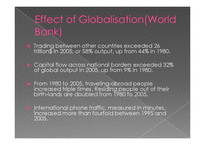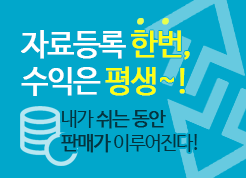[영미문화 비평] 문화, 권력, 세계화와 불평등(영문)
 등록일 / 수정일
등록일 / 수정일 페이지 / 형식
페이지 / 형식 자료평가
자료평가 구매가격
구매가격
- 2011.10.27 / 2019.12.24
- 28페이지 /
 pptx (파워포인트 2007이상)
pptx (파워포인트 2007이상) - 평가한 분이 없습니다. (구매금액의 3%지급)
- 2,100원
최대 20페이지까지 미리보기 서비스를 제공합니다.
자료평가하면 구매금액의 3%지급!
 1
1 2
2 3
3 4
4 5
5 6
6 7
7 8
8 9
9 10
10 11
11 12
12 13
13 14
14 15
15 16
16 17
17 18
18 19
19 20
20
추천 연관자료
- 목차
-
What is ‘Globalisation’
Key Aspects of Globalisation
Big-brother
Effect of Globalisation(World Bank)
Early Globalisation theory
Globalisation theory after cultural conflicts
Globalisation theory of mid 1990s
Globalisation & Inequality
Section 3.2
How the Bourgeoisie Stayed in Power
Marx & Engels on ‘Ruling Ideas’
Marx’s favored method for conceptualizing
- 본문내용
-
Karl Marx (1818-83)
.
Karl Heinrich Marx (May 5, 1818 – March 14, 1883) was a German philosopher, political economist, historian, political theorist, sociologist, and communist revolutionary, whose ideas played a significant role in the development of modern communism and socialism.
Born in 1818 Trier, Prussia
studied Law at Bonn and Berlin
began to study French utopian socialism in the 1840s
Widely influential in social sciences, arts and humanities
Influence on modern cultural thought
progression from primitive communism to feudal society then to capitalist society, leading to socialist society
Connection between culture and inequality
Economic structure of inequality, emphasis on opposed and antagonistic relationship between classes, and connection between power and culture.
Economic relationship is what underpins inequality
In all societies there has been members who own and control the means of production and other members who participate in the production on terms and conditions set by these owners
The Bourgeoisie in power
Their economic power allowed them to exercise political power as well
They were able to shape and control the agencies of state. This control enabled them to have monopoly on the use of force
Another aspect
The bourgeoisie had cultural control therefore spreading beliefs and values that would sustain unequal system
By legitimizing it through reference to non-economic domains of social experience
(culture as a biased prop for the bourgeoisie fashioned my its own interests)
자료평가
-
아직 평가한 내용이 없습니다.
오늘 본 자료
더보기

최근 판매 자료
- 다양한 보육의 유형에 맞는 특성을 살펴보고, 앞으로 우리 사회에서 필요한 어린이집은 어떤 형태가 좋을지 선생님의 의견을 논하시기 바랍니다
- 한국어 교재가 반드시 갖추어야 할 특성 제시
- 기능주의 교육이론이 적용된 사례를 찾으시오 (2개이상)
- [지적학] 세계의 지적공부와 우리나라의 지적발전방안
- [사회복지실천기술] 영화 `굿윌헌팅` 사례 분석
- [사회복지 실천] 영화 `굿윌헌팅` 사례개입
- [심리학] 뷰티풀 마인드 사례 분석
- 사회복지 현장의 클라이언트 인권문제와 개선 방안
- 사회복지현장의 클라이언트 인권문제와 개선방안
- [영화심리분석]영화 `뷰티풀마인드` 등장인물의 정신분석과 행동분석
저작권 관련 사항 정보 및 게시물 내용의 진실성에 대하여 레포트샵은 보증하지 아니하며, 해당 정보 및 게시물의 저작권과 기타 법적 책임은 자료 등록자에게 있습니다. 위 정보 및 게시물 내용의 불법적 이용, 무단 전재·배포는 금지됩니다. 저작권침해, 명예훼손 등 분쟁요소 발견시 고객센터에 신고해 주시기 바랍니다.









